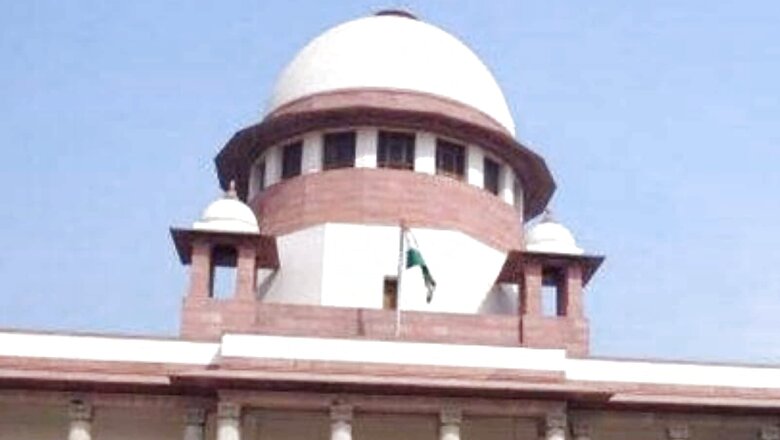
views
The Supreme Court, which is dealing with pleas concerning interpretation of certain provisions of the PMLA, on Wednesday deliberated upon how harmonious construction can be given to ensure that a person gets the requisite information about reasons for his arrest for the offence under the anti-money laundering law. A bench headed by Justice A M Khanwilkar observed it has been argued before it that the apex court will have to interpret the provisions of Prevention of Money Laundering Act (PMLA) to make it harmonious and compatible with Article 21 of the Constitution.
Article 21 of the Constitution deals with protection of life and personal liberty. Show us under this existing Act itself, how it can be worked out. How can harmonious construction be given so as to ensure that you get requisite information about the reasons for your arrest so that you also effectively defend yourself, said the bench, also comprising Justices Dinesh Maheshwari and C T Ravikumar.
The bench told senior advocate Siddharth Luthra, who was arguing for some petitioners in the matter, that it would have to focus on what information should be provided to an individual when he is arrested for the alleged offence under the Act. When you are arrested, what is the information that should be provided to you, we must focus on that. And at the same time, to the concerned court where you are being produced. We will have to focus on those provisions now, the bench observed.
We will have to interpret the provisions to make it harmonious and compatible with Article 21 regime also… Those provisions can't be disregarded at all while interpreting this scheme of the PMLA. That is the argument, it said. Senior advocate Kapil Sibal, who was also appearing for some petitioners in the matter, referred to section 19 of the PMLA which deals with power to arrest.
He said if the materials, on the basis of which a person has been arrested, is not disclosed to him then how can he or she go to the court and seek bail. How will I go to court and seek bail? I don't have the ECIR (Enforcement Case Information Report). I don't have the material, Sibal said, adding there has to be a procedure through which a person is informed so that he can seek his remedies.
He said the apex court will have to devise some methodology to take care of this problem…if laws are framed like this and interpreted like this, what I may honestly say so, we have created a Frankenstein's monster in the process…There is no restraint at all, no procedural restraint. This is the heart of the matter, Sibal said.
The arguments in the case would continue on Thursday. Sibal had earlier advanced submissions on Section 50 of the PMLA which relates to power of the authorities regarding summons, production of documents and to give evidence.
The apex court had last week observed that it needs to have a holistic approach on the issues raised in these pleas. While arguing the matter earlier, Sibal had referred to the provision of PMLA and said one of the questions which has to be considered by the apex court is can there be a procedure in law, where a criminal proceeding can be started against an individual without informing him as to what is against him. Sibal had argued that the issue of an individual being called without telling him whether as an accused or a witness is another aspect that the court will have to examine in the matter.
The Solicitor General had earlier told the bench that there are over 200 petitions in the matter and interim stays have been granted in several serious cases due to which investigation has been affected. Some of these petitions have challenged the validity of certain provisions of the PMLA.
Read all the Latest India News here




















Comments
0 comment